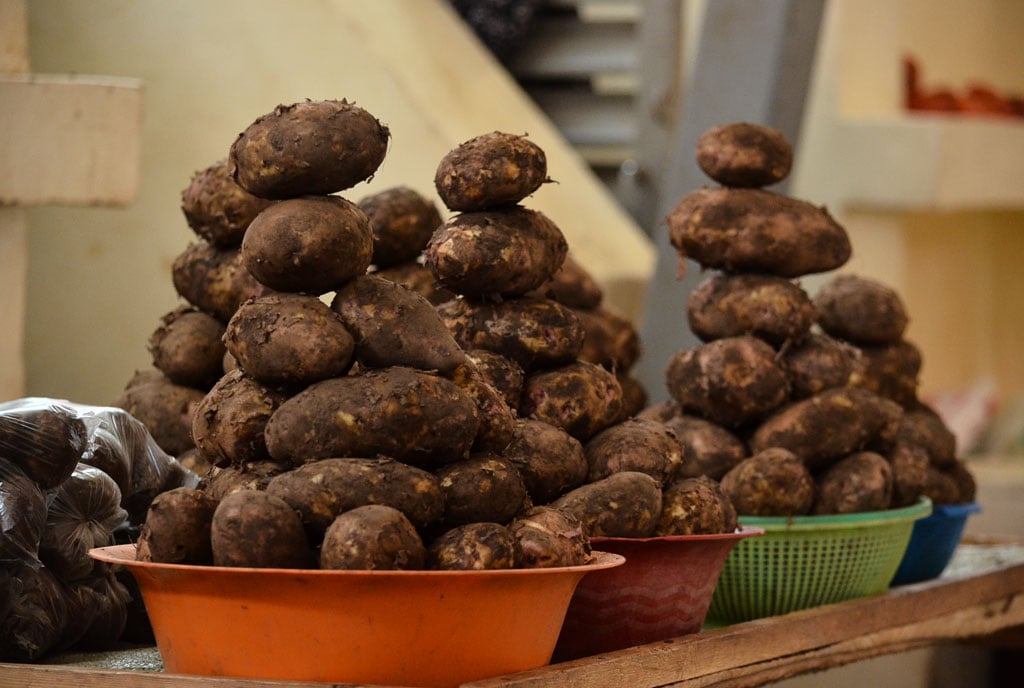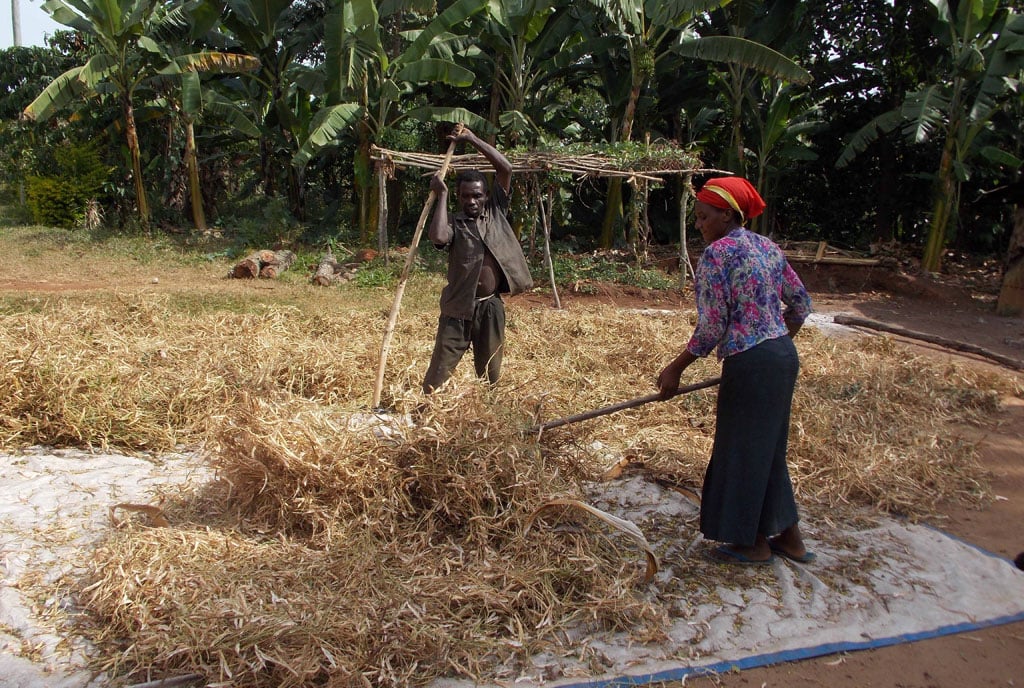Prime
Tapping into the potential of territorial markets to drive organic food supply

Potatoes on a market stall in Kitooro. Tracebaility of organic produce complicates the buying decisions by most consumers. PHOTO/GEORGE KATONGOLE
What you need to know:
- Territorial markets hold the promise of revolutionising the promotion of organic food items, offering boundless opportunities for farmers, consumers, and retailers alike.
Marketing of organic products faces numerous challenges right from production to the consumer’s plate. Without proper mapping, the traceability of organic products becomes increasingly difficult which compromises the quality of food supplied. One solution that ensures farmers get the right organic products they desire is through working with retailers in community markets commonly known as “territorial markets”.
These markets, however, are facing a humongous challenge with big-chain supermarkets which are dependent on cheap imports and easily accessible traceable products, threatening the existence of small-scale territorial markets.
Quick business solutions
The definition of territorial markets, as outlined by the UN Food and Agriculture Organisation (FAO), underscores their direct connection to local food systems, where the primary market participants originate from specific areas. In developing countries, these markets serve as the predominant access points for fresh food in both rural and urban settings.
According to the Alliance for Food Sovereignty in Africa (AFSA), African territorial markets are identified as markets aligning with the preferences of the majority of farmers, traders, and consumers. These markets embody the shared identity and values of the community, fostered through trust and relationships. As a collective entity, these markets exhibit organic characteristics reminiscent of indigenous commerce, featuring low entry barriers, open knowledge sharing, and the transfer of business practices across generations.
Referred to as community mass markets, these spaces bring together diverse people and a variety of food commodities, with price negotiations being a common occurrence, rooted in the relationships between those involved in the transactions. At the heart of territorial markets are small-scale agroecological food producers.
Important
Through territorial markets, the Participatory Ecological Land Use Management (Pelum) Uganda organisation and AFSA aim to highlight the importance of territorial markets to promote healthy food environments and ensure access to healthy diets, and nutritious and diversified food.
Pelum Uganda organised a three-day training for market leaders drawn from Uganda, Rwanda, and Zimbabwe in Entebbe to enable the creation of a sustainable supply chain. The training also focused on aspects of sustainable farming, natural resource management, and biodiversity conservation.
Hadija Nalule, the Agricultural Market and Business Development Programme Officer at Pelum Uganda says that the rising awareness of consumers to eat healthy food that is agro-ecologically produced, motivates such initiatives.
“We believe that by understanding the concept of agroecological food, it will be easy to create awareness among retailers and buyers which is key in driving change,” Nalule says.
Why territorial markets?
In the context of the global burden of non-communicable diseases (NCDs) and heightened mortality rates in developing countries, poor diets stand out as a primary risk factor. Territorial markets emerge as strategic players in addressing this challenge.
Territorial markets play a pivotal role in ensuring that healthy diets are not only accessible but also affordable, safe, and culturally acceptable for everyone.
Although data on territorial markets in Uganda remains scarce and awaits comprehensive mapping, they are recognised as valuable tools for promoting nutrition, sustainable agriculture, and women’s economic inclusion. Mapping initiatives can pinpoint entry points for aligning national agrifood systems, revealing gaps in market infrastructure, consumption patterns, and food safety.
The absence of a comprehensive database limits agroecology product suppliers in meeting market demands effectively.
These markets ensure a diverse array of food options for consumers across different income levels. In regions with limited resources, where home-based food preservation options may be restricted, territorial markets play a crucial role in sourcing fresh and seasonal foods like fruits, vegetables, meat, and fish daily.
Sustainable
Smallholder farmers bear the primary responsibility for global food production. The majority of food transactions occur within territorial markets, playing a pivotal role in ensuring smallholders can access markets and sustain their livelihoods.
Territorial markets serve as crucial sales outlets for local producers, particularly in Africa’s food sector where 80 percent of domestic food supplies are procured through markets primarily composed of small and medium enterprises (SMEs). Only 20 percent remains within farm households for their consumption.
The adoption of agroecology, while deemed demanding, faces criticism from farmers seeking quick returns through using chemical sprays and fertilisers. Richard Mugisha, proprietor of Jero Farms in Entebbe, an organic farm practicing agroecology, dispels such criticism. Mugisha emphasises that agroecology is both cost-effective and sustainable. However, he notes challenges where market leaders conspire to block organic product suppliers, citing instances in Entebbe.
“Agroecology is cheap and sustainable. It helps maintain soil health while giving consumers healthy food. Now that we have market leaders on board, we are sure of the market,” Mugisha says.
Despite their significance, territorial markets are often overlooked in policy development and nutrition-focused plans, primarily due to information gaps. Many consumers remain unaware of food safety risks, while some avoid certain products due to a lack of knowledge on preparation or the perception of requiring more time, leading them to prefer processed food.
Joseph Mudhasi, chairman of Nakawa Market in Kampala, expresses concern about farmers opting for chemical-based practices and consumers preferring processed food, contributing to the rise of non-communicable diseases.
“The farmers are already lazy. They prefer to use chemicals for weeding yet the consumers prefer processed food. All this is contributing to the growing rates of non-communicable diseases. The well-being of our consumers should concern us as traders. By supplying sustainable foods, we ensure the safety of future generations,” Mudhasi says.
Infrastructure and technological gaps pose challenges to the preservation of perishable foods in these markets, impacting food safety, availability, and desirability. Retailers face difficulties due to a lack of cold chain facilities, poor storage infrastructure, limited demand for organic products, and significant food losses. For example, Entebbe Market, housing an organic food stall, lacks access to cold warehouses.
Mugisha underscores the difficulty in identifying and assessing organically produced foods due to the absence of traceability, certification, and labeling systems, limiting consumer understanding of their full value.
Zuena Nantume, market master at Wandegeya market, advocates for specialised spaces for organic products. However, the reality remains that retailers selling agroecological or organic products constitute a minority, with only two out of 15 reserved stalls in the dedicated organic section in Entebbe currently in use.
Sustainable
Smallholder farmers bear the primary responsibility for global food production. The majority of food transactions occur within territorial markets, playing a pivotal role in ensuring smallholders can access markets and sustain their livelihoods.




